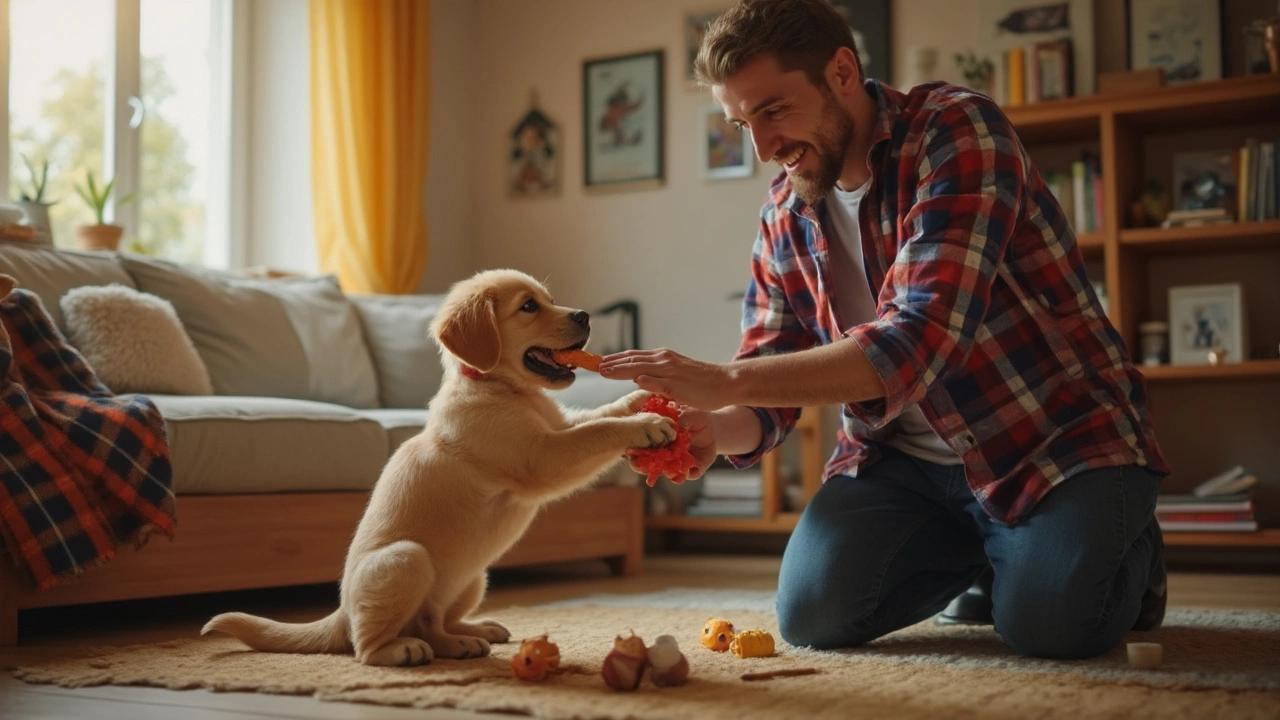Puppy Bite Prevention: Simple Tips That Work
Got a little nipper who loves to nip? You’re not alone – most puppies use their mouths to explore. The good news is you can teach them to be gentle without harsh punishments. Below are real‑world steps you can start using today.
Why Puppies Bite
Puppies bite for three main reasons: curiosity, teething, and play. When they’re chewing their new teeth, anything that feels soft – your hand, a sock, even your leg – becomes a target. In a litter, nipping is also a way to signal “stop” or “that’s enough.” Understanding the why helps you respond the right way instead of just reacting.
Another factor is excitement. A puppy that’s thrilled to see you may jump up and bite as part of the greeting. That’s not meant to be aggressive; it’s just an over‑eager response. The key is to redirect that energy before it becomes a habit.
Effective Methods to Stop Biting
1. Use a “soft no” cue. When the bite lands, say a firm “no” or “ouch” in a calm voice. The goal is to let the pup know the bite hurts you, not to scare them. Immediately stop play and turn away for a few seconds. This pause teaches that biting ends the fun.
2. Offer a chew toy. Keep a sturdy, puppy‑safe toy handy. As soon as you sense a nip coming, redirect the mouth to the toy. Praise them when they chew the proper item: “Good chew!” This reinforces the right thing to bite.
3. Practice “bite inhibition” games. Lightly let the puppy mouth your hand, then let out a quick “ouch” and pull back. Over time they learn to soften their bite. Do this in short sessions so they don’t get frustrated.
4. Teach “leave it” and “drop it”. Start with a treat in your closed hand. When they sniff, say “leave it.” When they stop trying, open the hand and reward them. Gradually add a toy or your clothing. A solid “leave it” command stops unwanted mouthing fast.
5. Provide plenty of exercise. A tired puppy is less likely to bite out of excess energy. Daily walks, short fetch games, and mental puzzles keep them calm and focused.
6. Stay consistent. Everyone in the household must use the same cues and reactions. If one person lets the bite slide while another scolds, the puppy gets mixed signals and the habit persists.
For extra guidance, check out our related posts on crate training and puppy sleep tips – a well‑structured routine often reduces nipping caused by anxiety.
Remember, patience beats punishment every time. Puppies learn best from gentle correction, clear expectations, and lots of positive reinforcement. Stick with these steps, and you’ll see fewer bites and a more relaxed companion in a few weeks.
- Morgan Ainsworth
- 0 Comments
Train a Dog to Stop Biting: Real Solutions That Actually Work
Biting is common in puppies, but it can become a problem if not handled early. This article breaks down simple, step-by-step methods to help any owner train their dog to stop biting. You’ll get insider tips, facts most people miss, and real stories from a dad who’s been there. Learn what really works, the mistakes to avoid, and how to make your pup safer around kids and strangers.
View More
